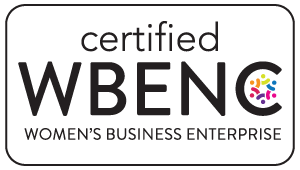Building Rapport in Your New Healthcare Job
Starting a new job can be difficult no matter how far you are in your career. If you feel a little lost the first few weeks working at a new healthcare facility, one of the best ways to begin to acclimate is by building rapport with your new colleagues.
Strong healthcare relationships behind the scenes can make the transition easier and help you understand your job responsibilities better. Rapport in healthcare is not only beneficial to you, but it enables you to provide better care and build patient trust.
Benefits of coworker relationships
You spend long hours with your coworkers, so establishing personal relationships should be an important first step. Busy work schedules and constant demands may limit the time you have with coworkers, but you can make it meaningful in small ways and see benefits like:
Improved collaboration
Having a personal relationship with coworkers can build professional trust and encourage teamwork.
Increased productivity
Better team collaboration increases productivity when everyone has clear expectations of their responsibilities.
Stronger morale
Employees who know they are part of a team that cares will be more likely to work through disagreements and be willing to share their ideas.
Higher retention rates
Employees who feel a personal connection with their coworkers and supervisors are more likely to stay with a company.
Better patient experience
Strong, collaborative healthcare teams with happy employees create positive experiences for patients and boost their confidence in the medical facility.
Elements of a strong team
Both leaders and employees can benefit from a strong, cohesive medical care team. Building work teams are a key element in the success of a healthcare facility. All employees can participate by considering these factors in themselves and their environments. As a new employee with a facility, you can keep these foundational elements in mind as you approach your new situation.
Authenticity
Connect with your coworkers and supervisors by being yourself. A strong team needs the unique perspectives of everyone to be inclusive of all experiences. Bring your authentic self to work and encourage your colleagues to do the same.
Communication
Most healthcare professionals have hectic schedules, so use your time with coworkers to talk openly about positive and negative experiences. Strong medical teams will appreciate hearing how they are doing and how they can improve. Encourage your supervisors to speak honestly about your performance so you can continually improve.
Trust
Gaining trust from your team or supervisor may take time, but you can build trust by showing up as yourself and encouraging open communication. Mutual trust among coworkers creates effective healthcare teams that anticipate needs and adjust when needed. Plus, patients who see a team that trusts each other will feel more confident about their care.
How to start building rapport in healthcare jobs
Knowing the benefits of a strong team and the foundation for creating one is the first step. But how do you start as a new employee in a medical facility? Think of how you can bring the elements of a strong team to your new job.
- Break the ice by finding common ground with your coworkers. It can be a personal interest, someone you both know or having a similar educational background. If you have lunch or a break with a team member, ask to join and have a conversation.
- Listening is a big part of communication, so ask co-workers questions and listen to their answers. You can start with job-related questions, which will help you learn more about your new environment.
- Trust usually comes in time, but if you start off on the right foot, you can gain your new team’s trust quickly. Be reliable. Offer help if it is needed. Be a resource for knowledge and be open to learning.
- If you are hired as a supervisor, talk to your staff about your goals and expectations for each team member. When time allows, meet with team members individually to get to know their backgrounds and career goals. Learn their strengths and how they can be best used for the team. Encourage open communication so that each team member will feel they are being heard.
New job difficulties
At some point in your new job, you may experience a difficult situation. It is best to deal with problems immediately to prevent them from being daily occurrences. If you are a staff member, ask your supervisor for a time to chat about your issue. Try to avoid negative statements and use neutral terms to express your frustrations.
If you are a leader with issues, you can seek advice from your supervisor using the same tone mentioned above. Sometimes, you may need to deal with problems within your team. Outline your expectations of each staff member, offer guidance and be available to listen when they need you.
Provide opportunities for your team members to work together to create stronger bonds. Encourage them to communicate with you and each other regularly to build trust and prevent future issues.
Resources for healthcare staffing
In our role as a medical staffing agency, the team at TinkBird is always here to support our providers in achieving successful placements for healthcare team leaders and members. Contact us to see how we can help you find the right-fit position and build a strong rapport in your healthcare job.









